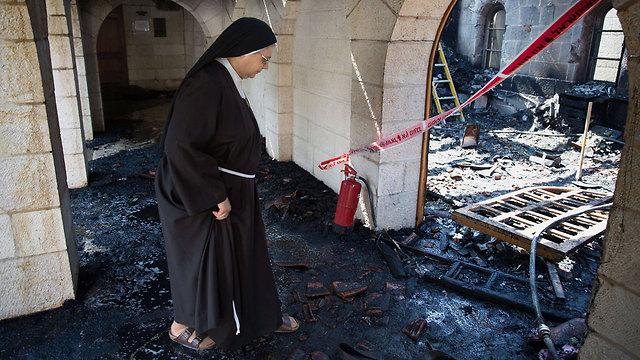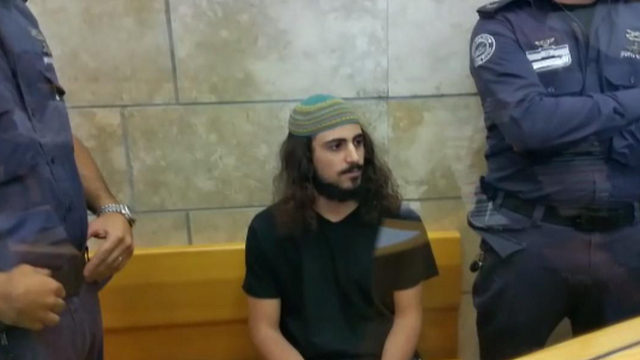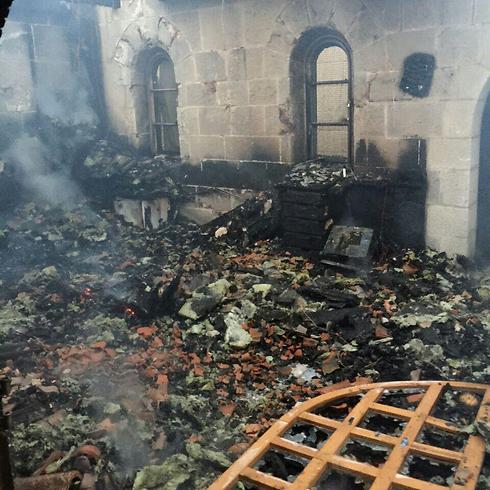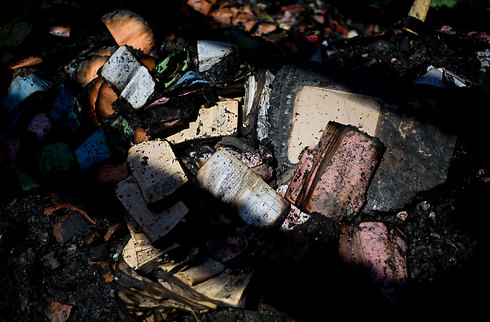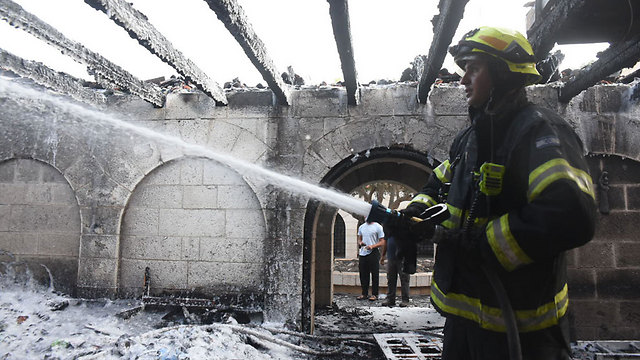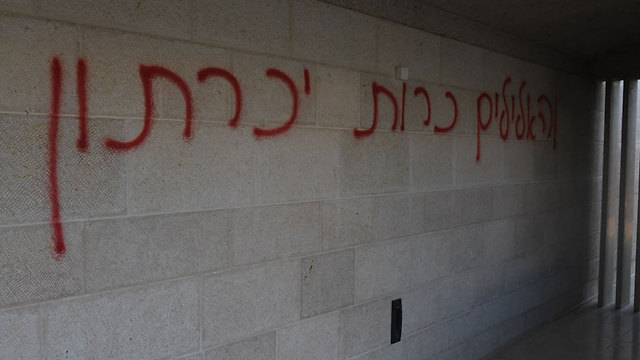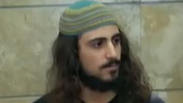

Extremist convicted for torching a church in northern Israel
Court finds 22-year-old Yinon Reuveni guilty of torching a famous church in northern Israel 2 years ago while acquitting man originally believed to be an accomplice; conviction statements says Reuveni established contact with others prior to the arson attack due to his 'hostile views' on Christianity.
The court also acquitted Yehuda Asraf, 21, who was accused of involvement in the arson attack and of providing assistance to Reuveni.
In June 2015, Reuveni torched the church in which Christians believe that Jesus Christ performed the miracle of “Feeding of the 4,000” with seven loaves of bread and fish. Two rooms of the church complex in Tabgha were damaged.
In addition to the fire, which caused extensive damage to the structure’s exterior, Reuveni also defaced the limestone wall with red paint denouncing the worship of idols.
Firefighters called to the scene managed to extinguish the flames just in time to avert what could have been far more damaging as they burned just meters away from the main hall of the church itself and its wooden ceiling.
Two people, a young female pilgrim and a 70-year-old man, were wounded in the blaze from smoke inhalation.
It is not the first time that Reuveni's extremist transgressions have landed him on the wrong side of the law. In 2016, he was charged for committing violent acts against Palestinians.
According to the conviction statement regarding the fire, Reuveni established contact with other unknown individuals prior to his assault on the church due to hostile views he harbored against Christianity in an attempt to damage the holy sites of the religion.
“In his aforementioned actions, the accused carried out the arson attack with others on property for public use,” the statement read. “In addition, the defendant, together with others, unlawfully wrote on the property of another, motivated by hostility toward the Christian religion.”
The church reopened 20 months after the fire. Christian dignitaries and donors attended a ceremony and mass in the Roman Catholic church, with the complex reopened to pilgrims following eight months of renovation work at a cost of around one million dollars, of which the state of Israel contributed almost $400,000.














